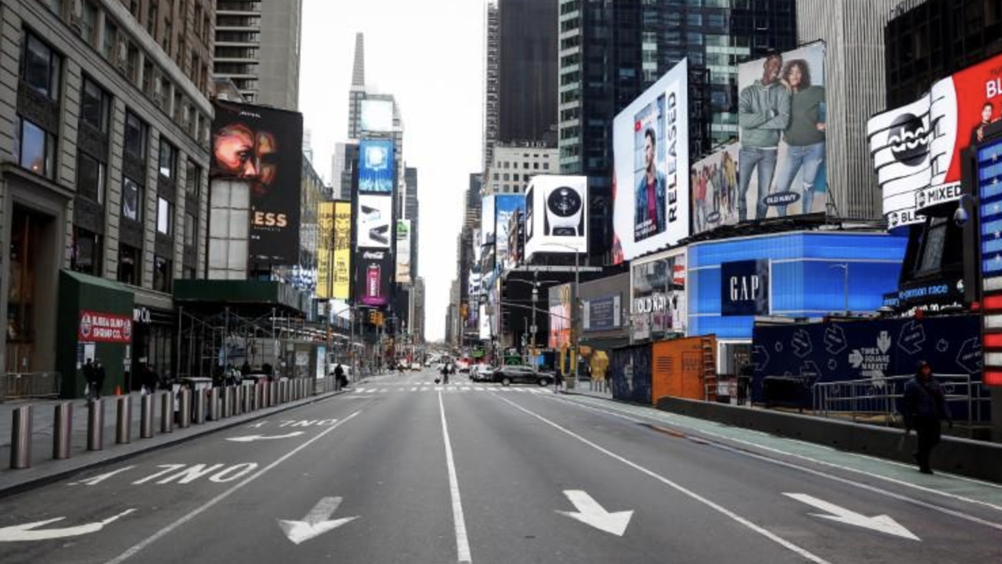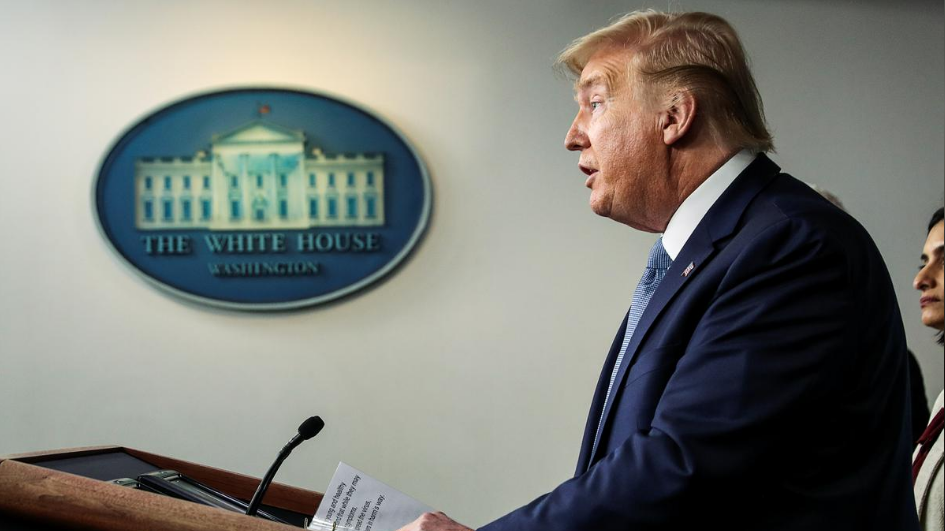The Trump administration's ignorance on the national health establishment may be behind the U.S. government's lack of preparation for the coronavirus, some Western media revealed.
The U.S. now leads the world in known COVID-19 cases, with over 121,000 infections and more than 2,000 deaths. New York state, the country's epicenter, has topped 52,000 cases.
Hospitals in New York are facing a harrowing increase in cases, according to The New York Times. Over the past 24 hours, 13 people at Elmhurst Hospital Center, which is a 545-bed public hospital in Queens, considered as the center of the crisis, have died.
A flood of sick and fearful New Yorkers has besieged emergency rooms across the city, described the newspaper.
The rapid spread of the virus and the increase in detection capabilities have led to a surge in confirmed cases in the United States, reports revealed, but less than 10,000 people have been tested in 36 states and Washington, D.C.

Times Square in New York City, U.S., March 19, 2020. /Reuters
Times Square in New York City, U.S., March 19, 2020. /Reuters
Multiple health sectors slashed, funding cut
In the spring of 2018, U.S. President Donald Trump failed on his proposal to eliminate Ebola funds due to the "nay" from congress. However, he succeeded in reducing 15 billion U.S. dollars in national health spending and cutting the global disease-fighting operational budgets of the Centers for Disease Control and Prevention (CDC), White House National Security Council (NSC), Department of Homeland Security, and Health and Human Services, while the government's 30 million U.S. dollar Complex Crises Fund was eliminated.
According to an opinion piece on CNN, Trump bears direct responsibility for America's unpreparedness and failed response to the epidemic.
"Since Trump came into office, he has systematically taken apart our protective public health system," said author Jeffrey Sachs, who is also a professor and director of the Center for Sustainable Development at Columbia University. "The pandemic unit at the NSC was dismantled in 2018 under his watch. Trump slashed the CDC's epidemic control teams in 39 countries, including China."

Trump talks about administration efforts to combat the coronavirus during a press briefing at the White House in Washington, D.C., U.S., March 16, 2020. /Reuters
Trump talks about administration efforts to combat the coronavirus during a press briefing at the White House in Washington, D.C., U.S., March 16, 2020. /Reuters
"We knew this was a serious and impending risk," echoed Susan Rice, U.S. National Security adviser during former President Barack Obama's administration. She said that's why under the Obama administration they set up an office for Global Health Security and Biodefense, which is the pandemic unit Sachs referred to.
"We staffed it with a senior person and made sure they could report directly to the National Security adviser and the Homeland Security adviser. Two years ago that office was dismantled."
Beth Cameron used to be the senior director of that office. She attributes the U.S. federal government's slow movement on COVID-19 to the lack of leadership.
In her recent publication, Cameron was "mystified" when the White House dissolved the office, which was established two years after the 2014 Ebola epidemic. Trump took office one year later. She believes the dissolution left the country "less prepared for pandemics like COVID-19."
The office was set up to be the "smoke alarm" and get ahead of emergencies and sound a warning at the earliest sign of fire, wrote Cameron.
"In a health security crisis, speed is essential," Cameron said. "When this new coronavirus emerged, there was no clear White House-led structure to oversee our response, and we lost valuable time."
In a health security crisis, speed is essential.
- Beth Cameron, former senior director of global health security and biodefense on the White House National Security Council
"The job of a White House pandemics office would have been to get ahead: to accelerate the response, empower experts, anticipate failures, and act quickly and transparently to solve problems," she added.
Last week, Dr. Anthony Fauci, the director of the National Institute of Allergy and Infectious Diseases at the National Institute of Health, also admitted that "it would be nice if the office was still there."
According to CNN, in at least 10 government reports from 2003 to 2015, federal officials predicted the United States would experience a critical lack of ventilators and other lifesaving medical supplies if it faced a viral outbreak like the one currently sweeping the country. However, none of them caught Trump's eye.
Now, the demand is pushing hospitals to the brink in New York City and threatening to do so in parts of Washington state, California, Louisiana and beyond, CNN stressed.
On Saturday, Trump backed away from issuing a mandatory two-week quarantine on New York, certain parts of New Jersey and Connecticut, instead calling for a "strong travel advisory" to stem the outbreak.
Florida Governor Ron DeSantis had advocated a quarantine, but New York Governor Andrew Cuomo told the media that locking down states "isn't legal."